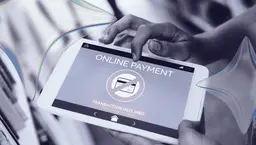Struggling with Gambling Addiction? Support is Available.
If you or someone you know is battling gambling addiction, contact the National Council on Problem Gambling (NCPG) or Gamblers Anonymous. For immediate support call 1-800-GAMBLER.
How Prevalent Are Gambling Losses in Online Sports Betting
The rise of online sports betting has brought about a surge in gambling losses, marking a significant trend in recent years. Since the revocation of the federal ban on sports betting in 2018, American gamblers have collectively faced staggering financial setbacks.
Record-Breaking Losses
To put it into perspective, projections indicate that nearly $300 billion could be lost by American bettors on sports betting alone. This eye-opening figure underscores the widespread nature of gambling losses associated with online sports betting.
Contributing Factors
Several factors contribute to these losses:
- Easy Access: The convenience of placing bets online makes it easier for individuals to gamble more frequently.
- Aggressive Marketing: The constant promotion of betting services entices more people to participate, often without a clear understanding of the risks.
- Lack of Regulation: Despite some state-level efforts, there remains a considerable gap in robust regulatory frameworks to protect consumers.
The Bigger Picture
When examining the broader impact, it's evident that the financial losses from online sports betting are not an isolated issue. This trend reflects broader gambling behaviors that impact communities economically and socially. With the continued expansion of online sports betting, addressing these losses is becoming increasingly urgent.
Understanding and Acknowledging the Loss
Acceptance
The first step in recovery is acknowledging the loss. Understand that losses are a part of gambling, and it's impossible to win every time. Accepting the loss is crucial for mental closure and to avoid the dangerous trap of 'chasing' losses, which often leads to even greater financial harm.
- Emotional Impact: Recognize and address the emotional impact of your loss. It's normal to feel upset, frustrated, or even angry. However, it's important to process these emotions in a healthy way. Engaging in stress-relieving activities, such as exercise, meditation, or hobbies, can be beneficial.
Taking a Break
- Pause and Reflect: Stepping away from betting allows you to break the cycle of gambling and gives you time to reassess your approach. Use this time to reflect on what led to the loss and how you can change your gambling habits.
- Self-Exclusion: Many online betting platforms offer self-exclusion options, allowing you to take a break for a set period. Utilize these tools to enforce a break from gambling.
- Blocking Betting Sites: Learning how to completely block betting sites on mobile and desktop is also crucial for those needing to take a step back from gambling.
Financial Management and Budgeting
- Assess Your Financial Situation: Take a thorough look at your finances. How has your gambling affected your financial health? Create a budget that accounts for your essential expenses and savings goals.
- Debt Management: If you’ve incurred debts, prioritize paying them off. Consider speaking with a financial advisor for guidance on managing debts and restructuring your finances.
- Setting Limits: If you decide to gamble again, set strict limits for how much you can afford to lose. Stick to this budget rigorously and never gamble money that you need for essential expenses.
How To Determine If You Have A Gambling Disorder During a Self Exclusion Period
Understanding whether you have a gambling disorder during a self-exclusion period involves closely monitoring your mental and emotional responses. Here's how:
1. Assess Your Ability to Abstain
- Track Your Behavior: Are you able to stay away from gambling activities entirely? Successfully abstaining can be a good sign that your impulse control is intact.
- Financial Recovery: Notice if you're starting to regain financial stability. If you see positive changes, this break might be all you need.
2. Observe Your Mental and Emotional State
- Emotional Well-Being: Pay attention to any significant changes in your mood or mental health. Feeling unusually anxious, depressed, or irritable can be a red flag.
- Behavioral Health: Monitor any compulsive behaviors or thoughts related to gambling. If you find yourself continually thinking about gambling, it could indicate a deeper issue.
3. Seek Professional Help
- Talk to Experts: Consult mental health professionals specializing in gambling addiction if you notice negative impacts on your mental or emotional well-being. Organizations like Gamblers Anonymous or the National Council on Problem Gambling can offer resources and support.
- Evaluate the Need for Further Action: If you find abstaining to be a significant struggle, or your mental health deteriorates, this may suggest a gambling disorder that requires more intensive intervention.
By closely observing your reactions during this period, you can gain insight into whether a more comprehensive approach is needed to address your gambling habits.
Seeking Support and Professional Help
Open Communication
Discuss your gambling and losses with trusted friends or family. Sometimes, just talking about it can provide relief and perspective.
Professional Help
If you feel overwhelmed, consider seeking help from a mental health professional. Counseling can provide strategies to cope with the compulsion to gamble and deal with the stress and anxiety that can accompany gambling losses.
Even if your relationship with gambling is only mildly problematic, you can still greatly benefit from speaking with a counselor. This can provide peace of mind by ensuring there are no deeper underlying issues. Talking to a professional can help you understand your behavior better and offer reassurance, making it a valuable step even if you don't have a severe gambling disorder. Counseling can provide strategies to cope with the compulsion to gamble and deal with the stress and anxiety that can accompany gambling losses.
Support Groups
Organizations like Gamblers Anonymous offer support groups where you can share experiences and learn from others who have faced similar challenges.
Resources for Financial Recovery from Gambling Debt in the United States
If you're struggling with gambling debt, there are numerous resources available in the United States to help you regain financial stability. Here are some key options to consider:
Non-Profit Organizations
- Debt.org: A comprehensive resource offering advice and assistance on managing debt.
- National Foundation for Credit Counseling (NFCC): Provides access to certified credit counselors who can help you develop a debt repayment plan.
Financial Planning Services
- State-Based Financial Counseling: Many states offer free or low-cost financial counseling services. These professionals can help you create a budget and explore debt repayment options.
- Certified Financial Planners (CFPs): Seek out licensed CFPs who specialize in debt recovery for tailored advice and strategies.
Legal Aid Services
- Pro Bono Legal Services: Some legal aid organizations offer free legal advice for those facing financial distress, including issues stemming from gambling debt.
Debt Management Programs
- Debt Consolidation: Look into programs that can consolidate multiple debts into a single payment, often with a lower interest rate.
- Debt Settlement: These services negotiate with creditors on your behalf to reduce the amount you owe.
By leveraging these resources, you can take concrete steps toward financial recovery and regain control over your financial future.
Educating Yourself
- Recognizing Problem Gambling: Be honest with yourself about your gambling habits. Recognizing the early signs of problem gambling is crucial.
- The Decision to Quit: If you find that gambling is more harmful than beneficial, it might be time to consider quitting entirely. This decision requires strength and self-awareness but can be crucial for your overall well-being.
- Seek Professional Counseling: If a self-assessment or test reveals that you may have a gambling disorder, the next step is clear. Initiate counseling with a specialist as part of a sustainable strategy to overcome gambling losses. Professional guidance can provide the tools and support needed for long-term recovery.
- Commit to Permanent Change: A fundamental change in your relationship with gambling is essential. Those suffering from a severe gambling disorder should aim to abstain from gambling completely to avoid financial ruin and other serious consequences.
- Evaluate Mild Concerns: Even if a test comes back negative, you might still be on the spectrum of problem gambling. Speaking with a counselor can be beneficial, offering peace of mind and addressing any underlying issues before they escalate.
- Long-Term Strategy: Developing a sustainable plan with the help of a counselor ensures you have continued support and strategies to prevent relapse and manage triggers effectively.
Take these steps seriously and prioritize your well-being to overcome the challenges of gambling disorder.
Responsible Gambling Practices
All bettors should understand responsible gambling best practices and the tools and resources that are available to help prevent and combat gambling addiction.
- Use of Tools: Familiarize yourself with responsible gambling tools offered by many betting sites, like deposit limits, loss limits, and reality checks.
- Self-Assessment: Periodically assess your gambling habits to ensure they remain under control. Many online platforms provide self-assessment tools to help with this.
Developing Other Interests
- Exploring New Hobbies: Engaging in hobbies and activities outside gambling can provide a sense of fulfillment and reduce the temptation to gamble.
- Building a Balanced Life: Focus on building a balanced life. Invest time in relationships, career, health, and hobbies. A well-rounded life can reduce the dependence on gambling for excitement or escape.
Reflecting on the Experience
- Learning from Mistakes: Use your experience as a learning opportunity. What could you have done differently? How can you avoid similar mistakes in the future?
- Growth Mindset: Cultivate a growth mindset where you see challenges as opportunities to learn and improve.
Knowing When to Stop
- Recognizing Problem Gambling: Be honest with yourself about your gambling habits. Recognizing the early signs of problem gambling is crucial.
- The Decision to Quit: If you find that gambling is more harmful than beneficial, it might be time to consider quitting entirely. This decision requires strength and self-awareness but can be crucial for your overall well-being.
Recovery from gambling losses is a journey that involves not only financial management but also emotional and psychological healing. It's about making conscious choices, seeking support, and learning from experiences. Remember, it's okay to seek help, and taking steps towards recovery is a sign of strength, not weakness. With the right approach and support, it's possible to recover from gambling losses and lead a balanced and fulfilling life.
Related Articles
Fast Bets, High Risk: How Quick Betting Formats Fuel Gambling Addiction
Every few minutes, a new wager flashes before the eager bettor’s eyes – a greyhound race about to start, a table tennis match entering the next round, or an in-play bet on the very next point in a tennis game. These fast-paced betting formats have surged in popularity worldwide, offering near-instant thrills and constant action.

How Bank Gambling Blocks Can Help You Manage Your Spending
We're here to help you understand How Bank Gambling Blocks Can Help You Manage Your Spending with expert analysis, guides, popular strategies, and more.

The Facts About Underage Gambling: Risks and Regulations
We're here to help you understand The Facts About Underage Gambling: Risks and Regulations with expert analysis, guides, popular strategies, and more.

Your Guide to Safe Gambling: Tips for a Responsible Gaming Experience
We're here to help you understand Your Guide to Safe Gambling: Tips for a Responsible Gaming Experience with expert analysis, guides, popular strategies, and more.

Meet our Responsible Gambling Experts
Paruyr Shahbazyan started his business career as an entrepreneur in 2000. Over 13 years, he learned business and leadership, which laid the foundation for his career.
In 2013, Paruyr entered the sports and betting industry as the founder and president of Bookmaker Rating, an online media platform he led until 2020. The platform focuses on in-depth analysis and insights in sports betting and has gained a reputation for quality content.
In 2022, Paruyr co-founded Azuro, a decentralized betting protocol. This shows his commitment to technology in the sports betting space. Through all these experiences, Paruyr has been shaping and influencing the betting industry, setting new trends and standards.
Innovation in sportsbetting comes from a deep understanding of both technology and the human element of sports.
Strategic Vision
Paruyr's vision is to revolutionize the sports entertainment industry by integrating technology. He sees the future of sports entertainment as a blend of traditional sports knowledge with innovative tech solutions, like decentralized protocols, to enhance user experience and fairness. He aims to create platforms that are not only user-friendly but also uphold the highest standards of ethical reporting, contributing to a more responsible and enjoyable sports culture.
